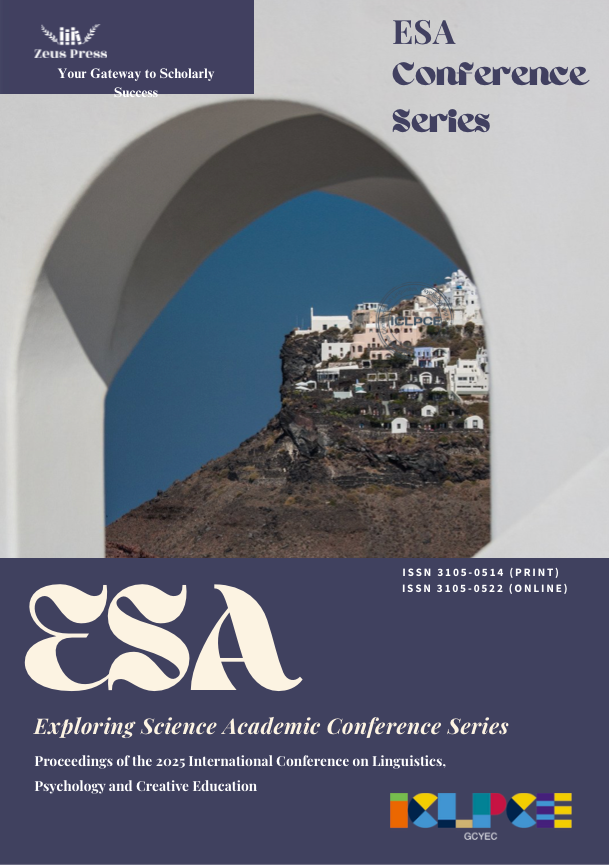The Dilemma of Awakening: On the Difficulty and Educational Implications of Bulgaria’s Social Transformation in “Uncle Ganyu”
Main Article Content
Keywords
Bulgarian literature, Uncle Ganyu, awakening, national identity, education
Abstract
This paper examines the symbolic role of Uncle Ganyu, the protagonist in Aleko Konstantinov’s Uncle Ganyu, as a representation of Bulgaria’s sociocultural struggles during its late 19th-century transition toward modernity. By analyzing the protagonist’s dual identity rooted in tradition yet exposed to European modernization, this study highlights how his traits of selfishness, conservatism, and superficial patriotism mirror broader societal tensions. Through close textual analysis, the paper explores Ganyu’s sporadic “awakening moments,” such as his reluctant admiration for foreign advancements and fleeting attempts to adopt civilized manners, which reveal a fragile consciousness of Bulgaria’s backwardness. These moments, however, remain incomplete due to entrenched ignorance and a lack of systemic education, reflecting the nation’s struggle to reconcile its Ottoman-era legacy with European modernity. Within postindependence Bulgaria, it was fragmented by territorial disputes and cultural dislocation. His interactions with educated narrators underscore the clash between rural traditionalism and urban intellectual aspirations. Konstantinov critiques not only Ganyu’s moral flaws but also a society hindered by superficial nationalism and materialistic values. The study argues that Ganyu transcends individuality; he embodies Bulgaria’s collective identity crisis, torn between preserving cultural heritage and embracing progressive ideals. Ultimately, the author posits education and ethical enlightenment as pivotal forces for national awakening, advocating for a cultural renewal that bridges tradition and modernity. By framing Ganyu’s incomplete transformation as a metaphor for Bulgaria’s stalled progress, the novel urges a reimagining of national identity through critical self-reflection and holistic education.
References
- Anderson, B. (2005). Imagined Communities, (Wu, R., Trans.) Shanghai: Shanghai People's Publishing House.
- Konstantinov (1988). Konstantinov, (Jiang, W., Trans.) Beijing: People's Literature Publishing House.
- Liu, Q. (2016). The Sociocultural Soil of Education Based on the Educational Anthropological Observation of the Andrews School in Philadelphia, USA, Beijing: Guangming Daily Publishing House.
- Wang, H. (2011). Six moments in the life of Ah Q: The 1911 revolution as a beginning. Journal of Modern Chinese Studies, no. 3, pp. 4-32.
- Кръстева, И. (2001).Структура и смисъл на "бай ганьо" от алеко константинов [Online]. Available: https://liternet.bg/publish7/ikrysteva/aleko.htm [Accessed October 30, 2025].
- Стефанов, П. (2001)."Бай Ганьо" като антитекст проблеми на идентичността [Online]. Available: https://liternet.bg/publish2/pstefanov/baj_ganjo.htm [Accessed October 30, 2025].


